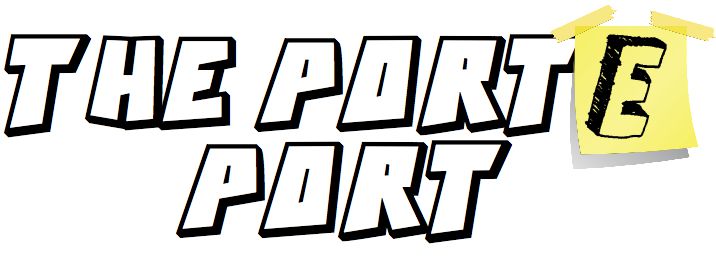How To Write An Exciting Story Climax (By Creating A Meaningful Crisis)
The DC/Marvel crossover movie series Justvengers is on its 4th movie (Justvengers 4: Reckon It's A Reckoning), and the plot has all led to the critical moment. Everything has unraveled, and our heroes (the clone grandson of Batman and the great-niece of Iron Man's...roommate's...friend) are now fighting for their lives.
It's the epic climax of the story where no one holds back.
Cars are crashing into each other, raining metal and glass on unsuspecting bystanders. A helicopter is in a tailspin into the mouth of the monster attacking the city. The villain is bringing the planet's moon out of its damn orbit to smash everyone below.
And then your reaction:
Meh.
Really? Come on! This is it! Everything is on the line.
Right?
You want to like it. I get that.
After the movie, you debate in your head why it should have been the best part. Over and over again, you can't seem to figure out what made you so...unexcited.
It was hollow action...well-done, sure, great choreography, amazing special effects, surprise returns from characters you thought had no chance to come back (remember that roommate's friend? He's back babyyy)...but forgettable.
This is what the writers were excited for you to get to in their story.
And all you can think about is what you'll eat for dinner because this movie is something you already put on the back-burner.
Hmm, what should I have for dinner? Something with cheese, probably.
Oh, right...I should explain what the hell I'm getting at.
What is the Crisis Moment in Storytelling?
When the epic moment comes and goes in a story-and you feel nothing-something is definitely wrong.
I'm telling you nothing new.
This is because you fear this very reaction from your own writing.
What if my audience gets to this scene I've been thinking of for literally years, and it does absolutely nothing for them?
Shit. That terrifies me too!
It's scary because the example at the start of this article (#justvengerthings) is something you've actually done. We all have. Every one of us has been underwhelmed by a climax at some point or another. (Phrasing)
Don't worry, though. This isn't some random phenomenon. There are very good reasons why the pivotal action in a story can seem lackluster.
It comes down to one word: crisis.
The crisis comes from your characters.
The protagonist must have a choice presented to them before the climax of the story. This choice is the crisis moment.
Choice A: This happens, but I risk that.
Choice B: That happens, but I risk this.
Either one: I (might) lose all of it, or myself.
If a character doesn't have to make difficult decisions in the plot of the story, the action will seem unearned. I need meaning behind the tank crushing cars as it plows through downtown, dammit!
The core of that choice is rather straightforward: stakes. If the story has no stakes, then there is no real emotion invested in what's happening.
Those stakes take time to develop, but they also need time to be weighed by the characters that will be affected by the consequences of them.
This is all lofty, maybe even obvious stuff, but let's look at a specific example to see how it all works.
Crisis in The Mandalorian Episode 3: The Sin
Initiate Holdo Maneuver!
Let's talk Star Wars' first live-action show, The Mandalorian.
Yup, definitely some SPOILERS for episode 3 if you somehow haven't caught up yet.
Unless you have just come back to the internet today, and for whatever reason, started your multi-month exile from the interwebs with my article, you know Baby Yoda.
I'd share a meme, but my god, we've seen them all. We get it.
Well, he was just an objective for our protagonist, the titular Mandalorian. Another bounty to be brought in.
Again, we've all seen Baby Yodes. He's friggin adorable.
The Mandalorian thought so too.
Helpless and innocent, this little thing just needed someone. Anyone. As we see in small slivers, the Mandalorian has his own connection to the helpless innocent in need.
Yet, there is honor and credits to be had, bringing in a bounty no one else has managed to pull off.
Essentially the guy is a freelancer, and word of mouth is everything.
The Bounty Hunting Guild's code is pretty strict when it comes to asking any reasons behind why someone is a bounty, or interfering with the bounty being given to the client.
This is the Mandalorian's whole life. There's honor tied up with his fellow Mandalorians too. This is all sort of a proving grounds for him and goes beyond just money.
Setting Up The Crisis Moment
Baby Yoda is being transported to the client, traveling in the cockpit of the Mandalorian's ship. He manages to take off a knob of one of the controls and plays with it, as a baby is want to do.
The Mandalorian takes it from him but has no time to replace the knob.
Then the Mandalorian does what he does best and delivers the adorable and sad baby to the obviously-gonna-hurt-the-little-guy former Imperials.
The episode takes the time to show the Mandalorian just wants his money, and the lost Mandalorian possessions, and get the hell off that planet ASAP.
He knows it's just a job, but there's a real weight to all of it.
“Hey you ass! WE HAD SOMETHING SPECIAL!”
He gets into his ship as fast as he possibly can and starts up the engines. As he goes through the startup process, he reaches for the control to take off.
The control that's missing the knob.
He holds in that position for a very long moment.
The Question Set Up By The Crisis Moment
And here we are: crisis.
A question is posed with zero dialogue and not even any facial expressions. Episode director Deborah Chow made this killer moment with a dude in a full-body suit, somehow acting out the crushing guilt of the choice.
Choice A: Take off. Get out of there. Don't think about this. Become one of the most famous and notorious bounty hunters on the scene and reap all the rewards. Yet, know that you helped in the murder of an innocent child (at best, because who knows what really waits for the Yodaling). Maybe lose yourself.
Choice B: Go back. Get the child out of the hands of blatantly evil dudes and away from here. Save an innocent and bring personal honor to yourself. Yet, the Bounty Hunter's Guild will probably come after you. The Imperials will come after you. It may all be for nothing if the child is already dead. Maybe lose your life.
It's a simple moment. A choice that we understand the stakes of. We, the audience, know there are dire consequences to either option. Our protagonist is in a place he can't avoid. A decision needs to be made, he can't just sit in this parked ship forever.
He shuts down the ship and goes back.
We all sigh relief because we wanted him to make the good-guy choice. It shows the kind of character he really is. This easily could have been a show where he is haunted by his inaction in this moment.
At the same time, though, we all take that breath right back. We know this is going to bring him a world of hurt too.
Writing The Consequences (aka: The Climax)
Now the incredibly tense action sequence with the Guild hunting the Mandalorian down, and his fellow Mandalorians flying in on jet backs with guns and flame throwers blazing, has a depth to it.
It's not just fun action, it's an earned plot piece that will have consequences all it's own. (Which is saying something in the franchise that loves to retcon every consequence in the universe. FYI: fall to your death in the Star Wars universe, it's the best odds of actually surviving no matter how many pieces you're in).
We got to sit in the choice and feel that moment of not knowing what the character will do. Seeing the outcome is now a physiological need for us to watch play out, rather than just an obligatory ending.
We know the stakes because we felt the moment of crisis. The choice.
When you think of that climactic battle you are leading everything to in your story, you need to take a step back.
How did your character get here?
Does your protagonist just end up in the action, or did they have to make a life-altering choice?
Did you let your audience sit in that choice for a little while?
Can they feel the weight of it?
If they don't, then you need to think, what's the Baby Yoda of my story?
What does your character reach for, only to be reminded something is missing?
Want more geeky writing advice? Join the newsletter by clicking below for even more story analysis right to your inbox. (Not, like, everyday though. Nobody wants that).









